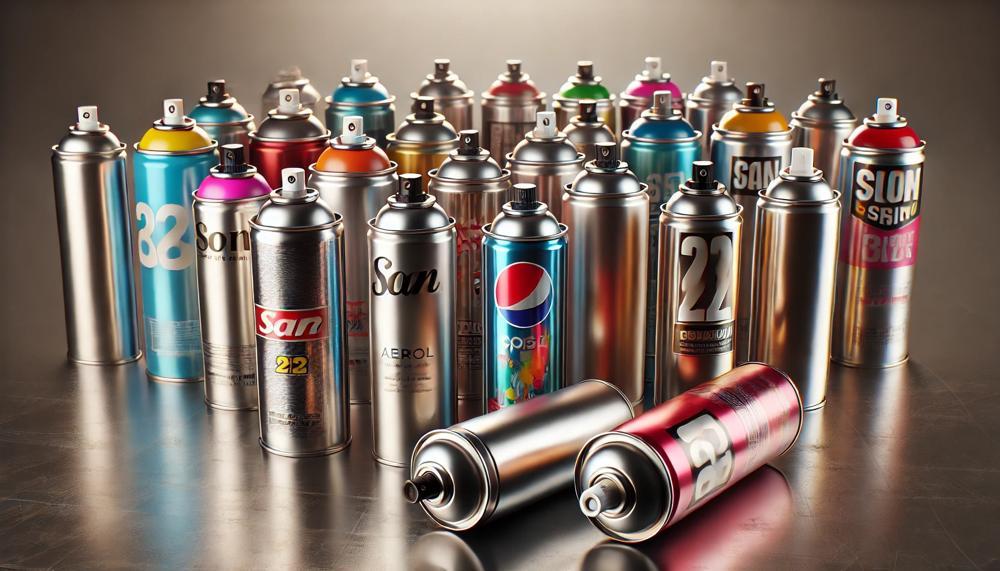Yes, you can safely dispose of aerosol cans, but the process requires careful attention to local regulations and proper handling techniques. Aerosol cans, often classified as Universal Waste, fall under strict EPA guidelines.
Proper disposal is essential to prevent environmental harm and ensure personal safety. But don’t worry, we’ve got the key steps for safe disposal covered. Here’s what you need to know:
- Understand Local Laws: Different regions have specific rules for aerosol can disposal.
- EPA Regulations: Follow the Environmental Protection Agency’s guidelines for Universal Waste.
- Recycle Empty Cans: Completely empty cans can be recycled. Shake the can to check for any remaining liquid.
- Handle Partially Full Cans Properly: Use an aerosol puncture station or safely empty the contents if they aren’t hazardous.
- Dispose of Hazardous Waste Correctly: Aerosol cans with hazardous contents must be taken to an approved hazardous waste site.
- Scrap Metal Option: Empty cans can be brought to a metal scrap yard, but it’s only worthwhile in bulk.
- Storage Tips: Invert cans before storing and keep lids on to extend their lifespan.
By following these steps, you’ll contribute to a safer environment and comply with local regulations, ensuring that aerosol can disposal is both responsible and straightforward.
Contents
- 1 Can Aerosol Go In The Bin?
- 2 How to Empty an Aerosol Can?
- 3 How to Dispose of an Empty Aerosol Can?
- 4 How to Dispose of Aerosol Cans with Dangerous Contents?
- 5 Eco-friendly Alternatives to Aerosol Cans
- 5.1 Refillable Spray Bottles and Misters
- 5.2 Homemade Solutions
- 5.3 Bulk Purchasing Purchasing products in bulk can significantly cut down on packaging waste. Look for bulk options for items like cleaning supplies and personal care products. Many stores offer refilling stations where you can bring your own containers. Solid and Powder Forms Solid and powdered forms of products, such as dry shampoos, bar soaps, and laundry detergents, eliminate the need for aerosol cans. These products often come with minimal packaging and can be used effectively without creating aerosol-related waste. Alternative Description Benefits Solid Shampoos Shampoo in bar form that lathers with water. No plastic waste, long-lasting, travel-friendly. Powdered Cleaners Cleaning agents in powder form that are mixed with water before use. Less packaging, customizable concentration, easy storage. Pump Dispensers
- 5.4 Eco-friendly Brands
- 6 Conclusion
Can Aerosol Go In The Bin?
No, aerosol cans cannot simply be thrown in the bin. Proper disposal methods depend on local regulations and the condition of the can.
Proper Disposal of Aerosol Cans
| Condition of the Can | Disposal Method | Details |
| Completely Empty | Recycle | If local regulations permit, empty cans can be placed in the recycling bin. Verify emptiness by shaking the can—no liquid sound means it is empty. |
| Partially Full (Non-Hazardous) | Empty and Recycle | Safely spray out the contents or use an aerosol puncture station. Then, recycle according to local guidelines. |
| Contains Hazardous Waste | Hazardous Waste Collection | Do not throw in the trash. Bring the can to an approved hazardous waste collection site or event. |
| Metal Scrap | Scrap Yard | Empty cans can be taken to a metal scrap yard. This is more practical if you have multiple cans. |
Important Considerations:
- Check Local Regulations: Look up your city or county’s disposal rules by searching “aerosol can disposal” online or contacting your local waste management facility.
- Universal Waste: Aerosol cans might be classified as Universal Waste under EPA regulations, necessitating special handling.
- Hazardous Waste Events: Many areas hold periodic hazardous waste collection events where you can safely dispose of partially full or hazardous aerosol cans.
Storage Tips:
- Store cans in a cool, dry place.
- Invert cans before storing to extend their lifespan.
- Always leave the lid on to prevent accidental discharge.
How to Empty an Aerosol Can?
To safely empty an aerosol can before disposal, follow these detailed steps:
Understand Local Regulations
Before beginning, check your local laws and regulations regarding aerosol can disposal. These can vary widely and dictate the proper procedures for handling such items.
Verify the Can is Empty
Shake the can to determine if it is empty. If you hear liquid sloshing inside, it is not empty and requires further action.
Discharge Remaining Contents
If the contents are non-hazardous, spray the remaining material into a safe, well-ventilated area, ideally outdoors, until the can no longer emits any substance. Avoid puncturing the can at home as it poses an explosion risk.
Handle Hazardous Materials
For cans containing hazardous materials, do not attempt to empty them yourself. Bring these partially full cans to an approved hazardous waste collection site. These sites have the proper equipment and protocols to handle dangerous substances safely.
How to Dispose of an Empty Aerosol Can?
Properly and safely disposing of an empty aerosol can involves several steps. Here’s a detailed guide:
| Step | Description | Notes |
| Verify | Shake and press the nozzle to check for remaining contents. | Ensure the can is completely empty. |
| Check Regulations | Look up local disposal laws online or contact waste management. | Varies by location. |
| Recycle | Place in recycling bin if permitted. | Only for completely empty cans. |
| Hazardous Waste | Dispose of partially full cans at hazardous waste sites. | Follow EPA regulations. |
| Alternative Methods | Use aerosol puncture stations or scrap yards. | Consider for multiple cans. |
How to Dispose of Aerosol Cans with Dangerous Contents?
Disposing of aerosol cans with dangerous contents requires caution to mitigate risks and comply with regulations.
Potential Risks
- Pressurization: Aerosol cans are pressurized and can explode if punctured or exposed to high heat.
- Chemical Hazards: Many aerosol cans contain hazardous chemicals that can be harmful to health and the environment.
- Fire Risks: Flammable contents pose a fire hazard if not handled properly.
Proper Disposal Methods
- Local Regulations: Understand and follow local laws regarding aerosol can disposal. These regulations vary and must be adhered to prevent legal issues.
- Universal Waste Classification: Some aerosol cans are classified as Universal Waste by the EPA. These must be disposed of according to specific EPA guidelines.
- Recycling Empty Cans: Completely empty cans can often be recycled. Verify emptiness by shaking the can—if no liquid sound is heard, it can be recycled.
- Hazardous Waste Sites: Partially full cans or those containing hazardous materials should be taken to an approved hazardous waste collection site. Local hazardous waste collection events are also a viable option.
- Avoid Puncturing: Do not attempt to puncture aerosol cans at home, as this is highly dangerous.
- Proper Storage: Store aerosol cans properly to extend their lifespan and reduce risks. Invert the can before storing and keep the lid on.
Eco-friendly Alternatives to Aerosol Cans
Refillable Spray Bottles and Misters

Refillable spray bottles and misters serve as an excellent alternative to aerosol cans. These can be easily sourced from hardware stores and used for a variety of household applications, such as cleaning solutions and air fresheners. By refilling these bottles, you not only reduce waste but also save money over time.
| Alternative | Description | Benefits |
| Refillable Spray Bottles | Containers that can be refilled with liquid products like cleaners and fresheners. | Reduces plastic waste, cost-effective, versatile use. |
| Misters | Fine spray bottles ideal for water or light solutions. | Eco-friendly, reusable, gentle mist suitable for plants and delicate surfaces. |
Homemade Solutions
Creating your own household products, such as insecticides and air fresheners, is another eco-friendly alternative.
Ingredients like vinegar, baking soda, essential oils, and water can be used to formulate effective and non-toxic solutions. Recipes for these DIY products are widely available and straightforward to follow.





